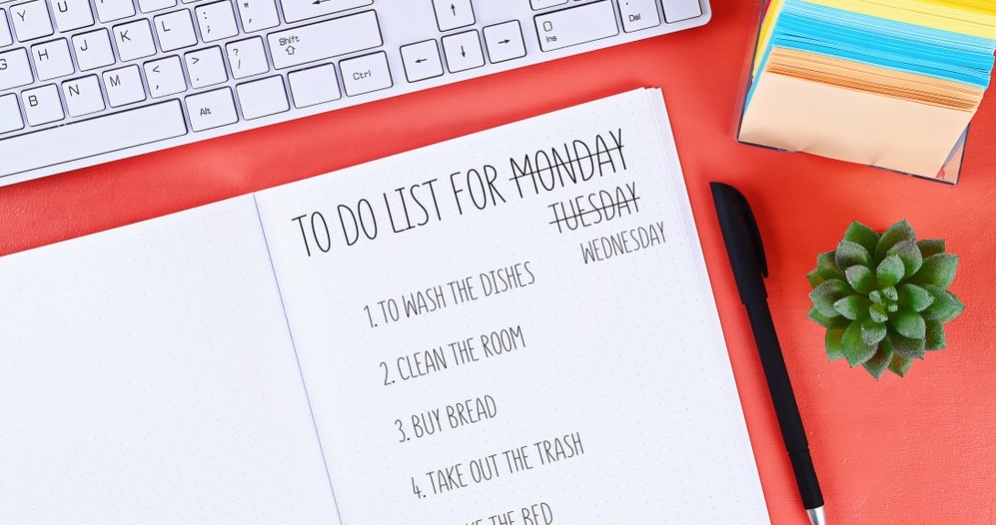Most people have procrastinated at one time or another. When you postponed a task or a decision, even though you know that doing so would make you worse off in the long run, you are procrastinating.
Procrastination can come in many forms. Postponing an assignment until the next day, avoiding an important conversation, delaying payment on bills, or skipping a routine dental or health check are examples of procrastination. While short term or situational procrastination is harmless, chronic compulsion to procrastinate can affect your physical and mental well-being in the long run, and prevent you from reaching your goals.
Common causes of procrastination
- Goals are abstract or unclear
- The task is tedious or boring
- Rewards are too far in the future
- Feeling overwhelmed or anxious
- Perfectionism or fear of failure
- Self-sabotage or self-defeating beliefs
- Indecisiveness
- Lack of motivation
Practical tips to help overcome procrastination

#1: Daily 3 item to-do list
#2: Make the “Rather-Dos” more inconvenient, and the “To-Dos” easier
The old adage of “out of sight, out of mind” applies. If you have a habit of picking up your phone and scroll through social media mindlessly, putting away your phone on a further table in your study or just deleting the apps might just be the hack for you to improve your focus.
Still fearful that you will be losing something valuable by deleting the social media apps? Give it a try for just 2 days and see how it works for you. You can always reinstall them if you cannot live without it. You can be assured that social media companies have got your back and you can resume using it effortlessly like nothing has happened.
Likewise, laying out your exercise clothes the night before, with socks beside your pair of shoes, will get you out of the door faster for that run in the morning. Reduce the time taken to prepare and you can reduce the chances of getting sucked into a “rather do” activity.

#3: To finish, just get started
Often, we are faced with a tough “should do” and we get paralysed by the thought of a seemingly mammoth task on hand. We even end up ruminating about it the whole week with nothing done at the end of it.
Whether is it a writing assignment or household chores, try taking small steps, such as typing in the title of the assignment, or washing a single cup in the sink will help you gain that precious initial momentum.
Other causes of procrastination
While the above tips may be helpful for people who are poor at time management or organisational skills, there can also be other causes for procrastination. People who suffer from mental health issues such as depression or ADHD should work with a trained mental health professional to find out and address the underlying cause of their procrastination.
Speak to a Singapore-registered Psychologist or Counsellor via video-call on the DA app. All calls are confidential and end-to-end encrypted, so you can be confident on your privacy.








